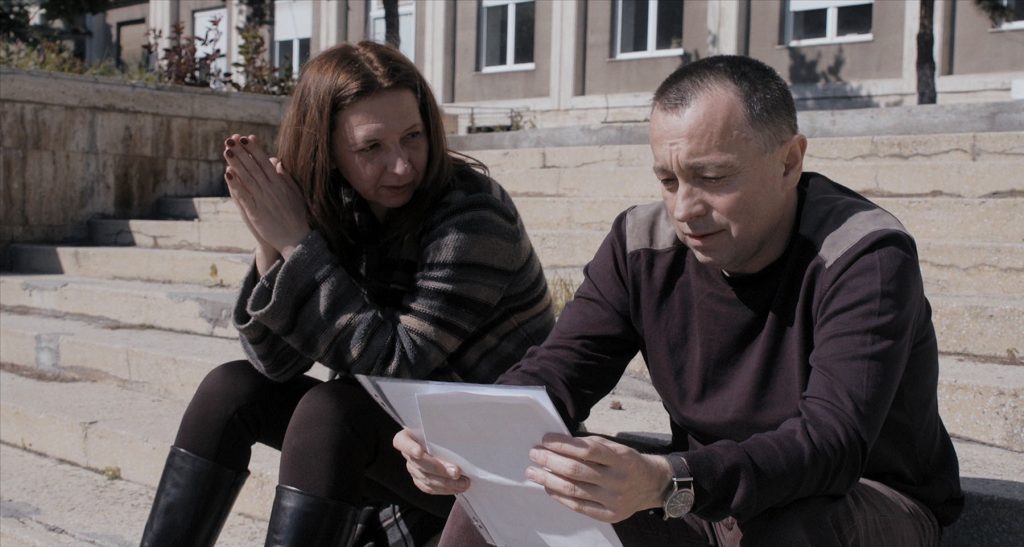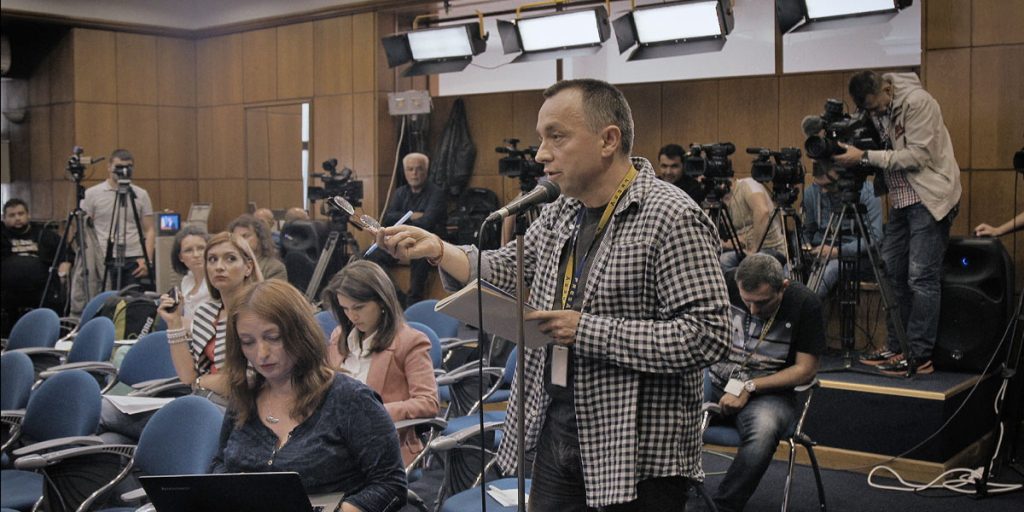Collective ’s pace may prove difficult for some viewers, but its calculated approach to a real-life tragedy and unwavering focus on those affected pays off in the end.
From its opening moments, Alexander Nanau’s Collective hints at a double meaning with its title. First is an obvious reference to the Collectiv club in Romania, where a fire claimed the lives of 27 young people due to a lack of fire escapes and ignited national outcry. Second, and more thematic an interpretation, alludes to the subjects of the documentary and their coming together against a common enemy. For Collective is as much a story about power in numbers as it is an investigation into a tragedy that evolves into an exploration of a conspiracy. Nanau has crafted a documentary that harkens back to classic investigative films, such as Costa-Gavras’s Z or Alan J Pakula’s All the President’s Men, for a nonfiction story that has all the hallmarks of a Hollywood thriller while still maintaining the integrity of the story.
The surface premise for Collective is intriguing enough to warrant its own story. At the Collectiv club, which served as a popular gathering place for young people, a fire broke out one night and resulted in 27 immediate deaths and many more receiving severe burns. It doesn’t take long for Nanau to earn our sympathies, a video taken from inside the club documenting the start of the blaze, and the panicked cries of those unable to escape bring the tragedy into perspective. While the cause of the blaze and the disturbing lack of fire exits would make a compelling story by itself, the real narrative thrust comes weeks later, when various burn patients begin dying en masse at their hospitals. Many victims only received minor burns yet still perished due to bacterial infections widely thought to be preventable.
It’s clear that Nanau did not expect the story to go this direction: the opening minutes focus extensively on the grief of the families of the immediate victims and the slow process of recovery for those who made it out. The news of the dying patients takes both the audience and the reporters covering the case by complete surprise, and Nanau pivots focus gracefully by introducing the main cast of characters, a sports newspaper that seems to be the only one interested in the story.

From here, the twists that were the exception in Collective’s first act quickly become the norm as the reporters stumble upon a massive conspiracy that affects the entire country’s healthcare system. Allegedly, hospitals had been diluting disinfectants over ten times past the recommended safety guidelines, resulting in the failed sterilization of both patients and medical tools. Nanau frames these revelations so plainly that one might miss them if not paying attention; each conversation flies by, dumping more information on us that we can process but never leaving us completely lost. Numerous press conferences with government officials reveal very little, and soon a clear anti-corruption narrative emerges that pits both regular citizens and the seasoned reporters against the apathy of the government. It’s hard not to see the parallels to other situations abroad where the rights and safety of citizens are put second to the wallets of officials; the film simmers with a quiet rage at the situation and the persistent urge to change the system that led to this disaster.
Change does come eventually, though to what extent remains up for debate. The minister of health resigns over the scandal and a much younger, more in-touch man takes his place. But the question of his loyalty remains in question as he is torn between covering his government and helping those affected by their negligence. Unfortunately, by this point in the film, the pacing has slowed considerably and the back-room conversations start to bleed together so that for every one thread that is resolved two more appear. The scope of the corruption uncovered is staggering and should be extremely worrying for all who watch, but perhaps the scope was too big to be adequately explored in 110 minutes. When the end of the film approaches and we get the first real glimmer of hope, one can’t help but wonder if a series of exposés and one hopeful election can undo the decades of systematic incompetence that lead to this situation. Nanau and the reporters don’t necessarily think so either, but at the very least it’s the first step in the right direction. Depressing as it may be, Collective deserves to be considered one of the finest pieces of investigative media in recent memory.
Collective will open in US theaters and on demand on November 20, 2020.

